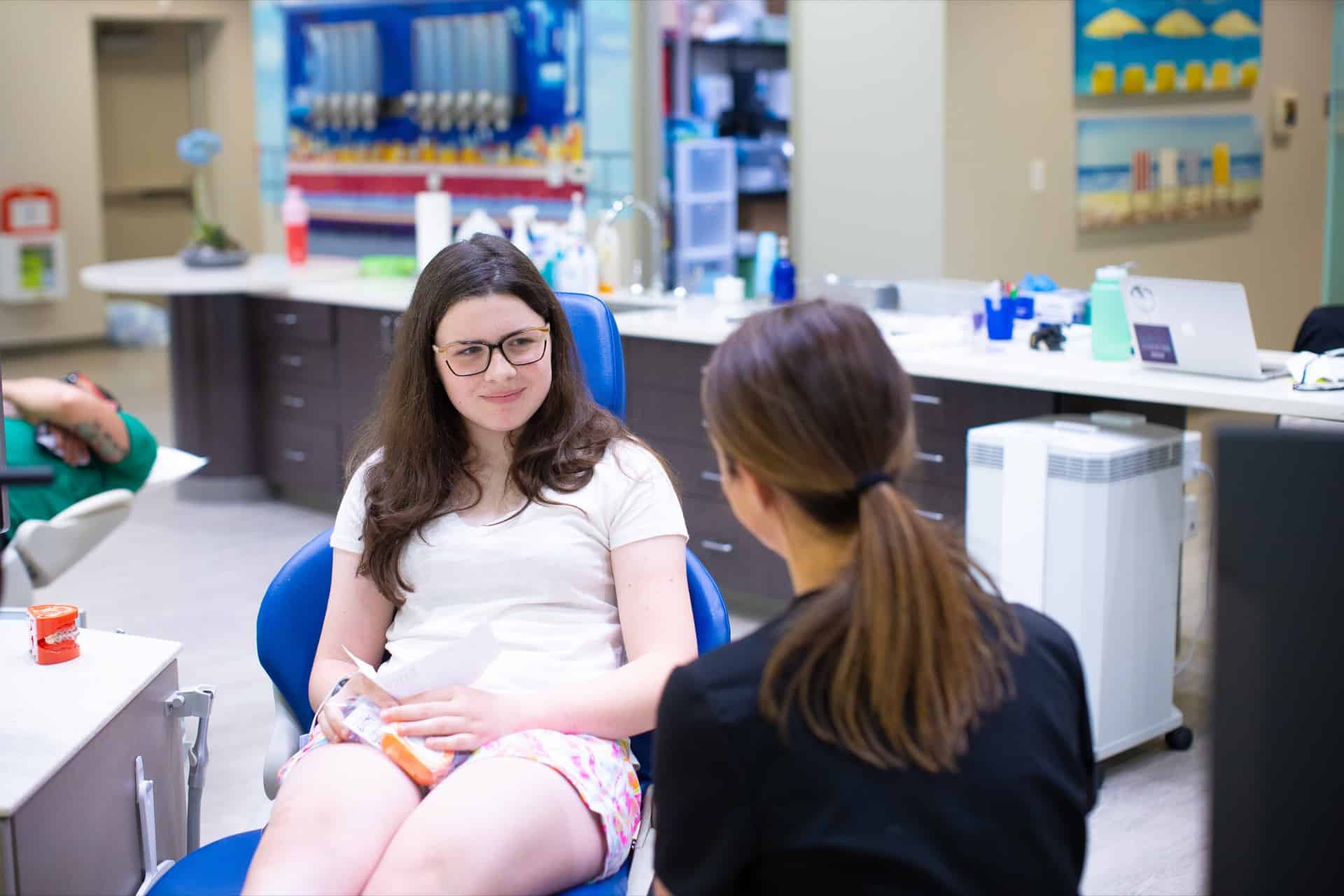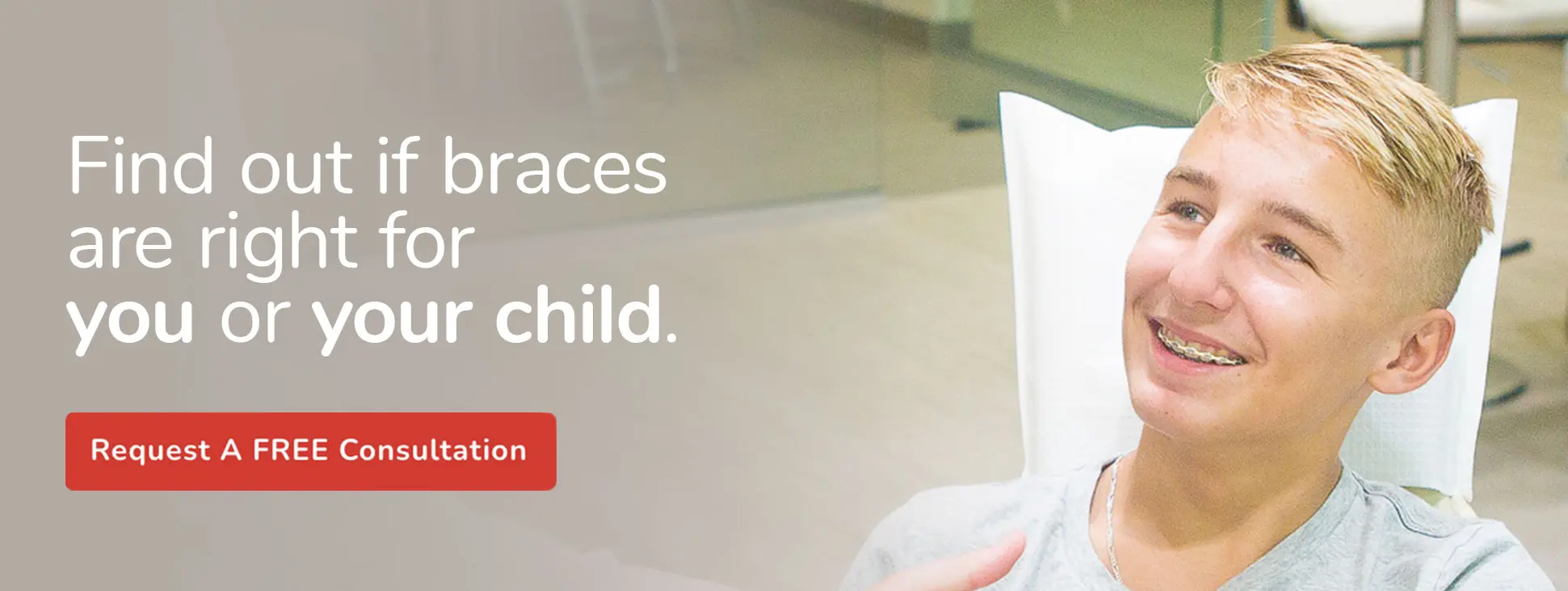Types of Bite Problems
There are seven types, or classifications, of bite problems. Generally, a bite problem is when your teeth don’t line up correctly or don’t line up at all because they’re crowded, gapped, or otherwise out of place. Ignoring these bite problems can cause other issues later, but they can also affect your or your child’s self-esteem. They can also cause speech problems, including a lisp or the inability to pronounce certain sounds correctly.
The best solution is to fix your dental issues as soon as possible, preferably as a child, although adults can also improve their dental issues. First, let’s see what kinds of problems we’re talking about. Let’s take a look at the seven types of bite issues.
Overbite
Overbite is one of the most common dental issues. This is where the upper teeth sit further forward than they should from the lower teeth when the jaws are at rest. What causes this type of bite problem? Genetics, tongue thrusting, teeth grinding, or spending too long with a pacifier or thumbsucking can cause an overbite. Children should stop using a pacifier or sucking their thumb by age 2 to prevent dental problems.
Underbite
An underbite is the opposite of an overbite. In this case, the lower teeth sit forward of the upper teeth, something they’re not supposed to do. This is often caused by the lower jaw growing too much or the upper jaw growing too little. Patients often have a profile with the chin jutting forward.
Crossbite
A crossbite is when the upper tooth or teeth sit inside its lower counterpart or counterparts. With molars, the upper teeth sit more toward the tongue than toward the cheek, as they should. The front teeth sit behind the lower teeth instead of in front of them.
Deep Bite
A deep bite is an excessive overbite when the upper teeth sit far forward from the lower teeth. Sometimes called “buck teeth,” a deep bite can give you a profile where your lower jaw sits far back from the rest of your face. Excessive tongue thrusting, the fast growth of the upper jaw, and excessive tongue thrusting can be reasons for a deep bite.
Open Bite
An open bite is when the front teeth protrude or curve so much that there is an open gap between the upper and lower teeth. Excessive tongue-thrusting, thumbsucking, or mouth breathing can cause an open bite, as well as genetics that causes a deformed palate.
Crowded Teeth
Crowded teeth, or crooked teeth, often result from the permanent teeth not having enough room to come in properly, `so they come in turned or in front of or behind the teeth next to them. Crooked teeth can be harder to clean, leading to higher chances of tooth decay and gum disease.
Gap Teeth
Gap teeth are the opposite of crowded teeth. In this case, the jaw is so wide that the teeth are spread out instead of touching, or teeth are missing that allow other teeth to spread out, or the permanent teeth are smaller than normal. Gap teeth in the front can lead to crowded teeth in the back and vice versa.
How Do I Fix My Bite Problems?
The tried-and-true method for fixing bite problems is braces treatment. In the last few years, many cases could also be fixed with treatment by Invisalign clear aligners. While Invisalign can fix many bite problems, it usually can’t fix the most severe cases. In those instances, braces are the better way to go.
So which treatment would benefit you? If you’re in the Philadelphia, PA, area, you can contact Appel Orthodontics to schedule a free consultation. We will bring you in, tour our office, and introduce you to our friendly, professional staff. We’ll then thoroughly evaluate your dental issues, including providing digital images and x-rays of your mouth. We’ll explain your dental issues and give you a detailed treatment plan to fix those issues with braces or Invisalign.
You don’t have to live with bite issues or the problems they cause now and can cause later. Appel Orthodontics is here to help you and give you a beautiful new smile!



